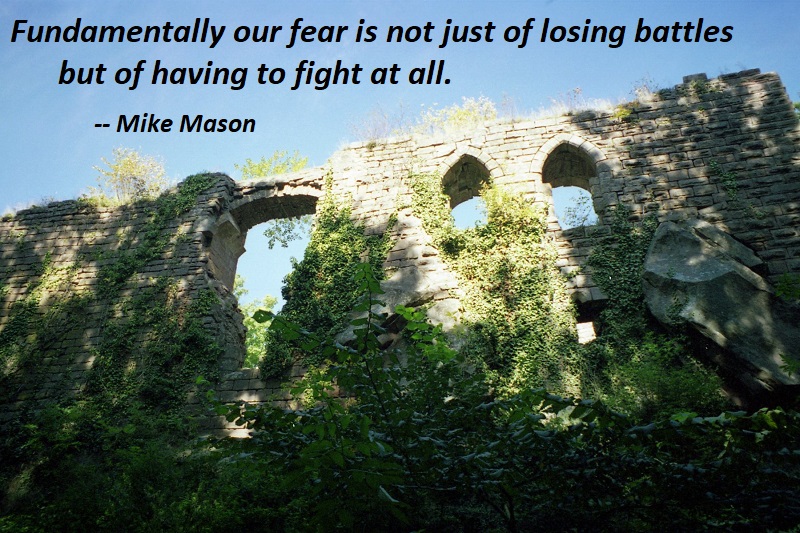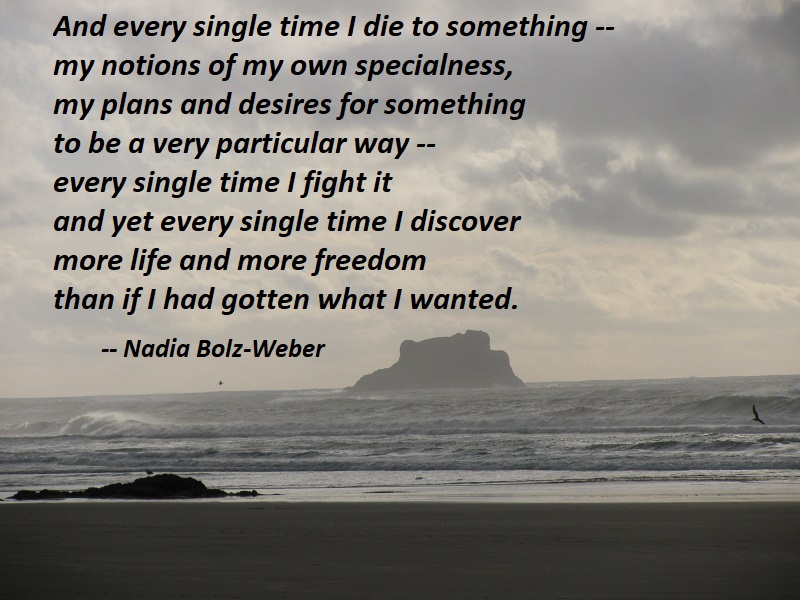Enemy of Joy
The greatest enemy of joy is fear. The quickest way to send your joy packing is to become afraid that it will leave or that something will happen to take it away. What a pitiful way to live! Nothing can be deeply enjoyed for fear it will soon be gone. Paradoxically, however, the way to hold on to joy is not to cling to it. When trouble arises and I say, “Oh no, my joy is gone!” — then it will be gone. If instead I relax my grip on joy and release it to adversity, accepting whatever life may bring, then nothing can intimidate me and steal my joy. Joy dwells in an open hand.
What are we so afraid of? Fundamentally our fear is not just of losing battles but of having to fight at all. Overcome the reluctance to fight, and the fear of losing dissipates.
— Mike Mason, Champagne for the Soul, p. 75
[Photo: Ruines de l’Oedenbourg, France, September 28, 1997]



